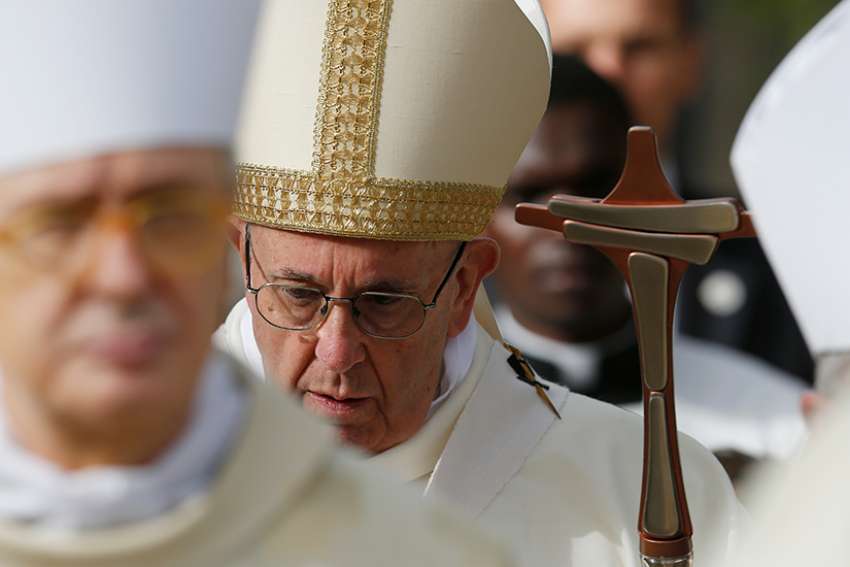In a seven-page letter released April 16, the general secretary of the Canadian Conference of Catholic Bishops, Msgr. Frank Leo, took aim at “misunderstandings and factual errors” circulating after NDP MP Charlie Angus sent the motion to Prime Minister Justin Trudeau in an April 2 letter.
Angus is seeking unanimous government support for a motion to call on the CCCB to formally invite Pope Francis to apologize in Canada as requested by the 2015 report of the Truth and Reconciliation Commission.
It is unclear when the motion would be introduced. If Angus can muster all-party support, it could be passed quickly. Otherwise, it could be several weeks before a debate could be scheduled.
The Conservative Party is undecided on whether it will support the motion. The issue was to be raised at a weekly caucus meeting April 18. The CCCB scheduled a news conference for the same day.
In an opinion piece published in the Toronto Star, Angus said the CCCB is the body which must initiate the process of a papal invitation and “they have decided against this.”
In a letter to The Register, Leo insisted that Canadian bishops “have assured the Pope they would joyfully and gratefully welcome him in a visit to Canada.”
“Likewise, in a number of instances, Canadian bishops, both individually and collectively, have formally invited the Holy Father to visit Canada,” he said. “Such a visit, however, depends on many factors, including timing, nature, intention, human, structural and financial resources, as well as the surrounding protocol.”
Leo’s statement said the decision about a papal visit to Canada was made in consultation with Canada’s bishops as well as the Holy See’s Secretariat of State. “Pope Francis remains open to a future visit,” Leo wrote. “Sharing in the pain of Indigenous Peoples, he would certainly ensure such a visit includes meaningful encounters with them.”
Leo called it “simply inaccurate” to suggest the Catholic community has not accepted responsibly for the Church’s involvement in the residential schools.
“The Catholic Church has apologized in the way it is structured,” he wrote.
The letter explains the Catholic Church’s decentralized structure, noting each diocesan bishop is “autonomous in his diocese” and is not accountable to the CCCB.
Of 61 Roman Catholic dioceses in Canada, 16 were involved in the schools. Out of more than 100 religious orders, about three dozen operated schools, he said.
Leo pointed out the TRC’s website provides links to numerous apologies from Catholic entities that ran the schools. He also noted the apology of Pope Benedict XVI in 2009 and quoted the acceptance of Indigenous leaders present for the occasion.
The proposed motion also calls for the CCCB to make up the difference in the amount the Catholic entities raised in a “best efforts” fundraising campaign and the goal set out in the Indian Residential Schools Settlement Agreement (IRSSA).
The Catholic entities named “were legally deemed to have fulfilled the requirements of the settlement agreement by a judicial review,” said Leo, and released released from further obligations — “a decision which the present Liberal government did not appeal.”
Angus described this as “a legal loophole” that allowed the Catholic bishops “to walk away from their legal obligation to pay $25 million in compensation.”
Leo noted that the Catholic entities had paid $29 million, less legal costs, in cash; and more than the required $25 million in “in-kind” contributions.

